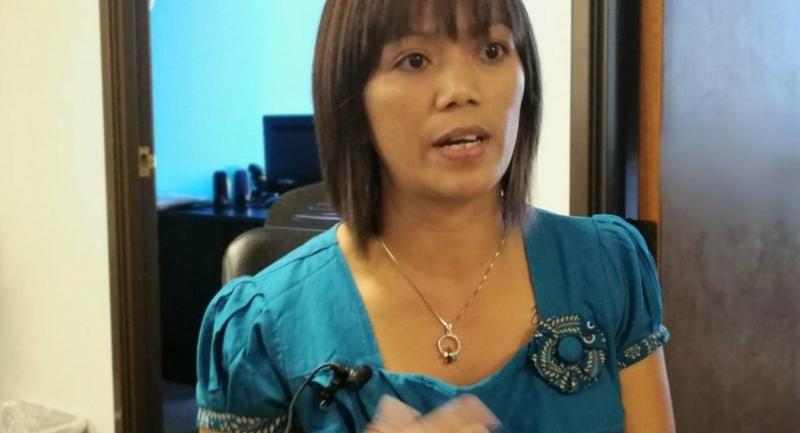Victims battle US trafficking

ASEAN NATIONALS RECOUNT SLAVERY-LIKE CONDITIONS AFTER TRAVELLING OVERSEAS
IMA MATUL late last year ended her two-year term on the US President’s Task Force Against Trafficking, where she stood with 10 international colleagues to provide advice to task forces under ex-president Barack Obama.
But it took almost 20 years for the Indonesian-born woman to get to that influential place, as she worked for two decades to help people from Southeast Asia, and around the world, who faced the same fate as she once did – a victim of human trafficking.
The then-17-year-old Ima travelled to the US on her labour recruiter’s promise that she would become a nanny earning US$150 a month.
“At that time, it was a lot for me. I was also told I would not have to pay for the airfare or anything,” Ima told a group of international journalists at the Coalition to Abolish Slavery & Trafficking (CAST) headquarters, where she now works as a survivor organiser.
The CAST was also a refuge, helping Ima with medical issues, legal assistance and job training after she ran away from conditions she realised amounted to slavery.
“I didn’t get anything as promised. I had no day off or salary,” she recounted. “I was physically and verbally abused almost every single day. I had to sleep in the corner and did not have my own room. My trafficker also made sure that I would not dare to say anything when outside.”
During three years of slavery conditions, Ima got to meet outsiders, from her neighbours in California’s Beverly Hills to a community church and doctors at an emergency room.
But the family, headed by an Indonesian wife and an American-born Chinese husband, made sure that everything would appear normal to outsiders and that Ima would not leak anything that would cause them trouble.
Her neighbours, who usually had informal relations with each other, once took bruises on her face as being caused by her simply falling off a ladder. “When I went to church with them, everything appeared to be normal. I also didn’t really know if anyone else there was abused as badly as I was,” Ima said. “When I had to go to hospital, the husband insisted that I went to the emergency room. I was told not to say anything and let him do the talking.”
Avelino T Reloj had similar experiences after fleeing the Philippines in 2007 with expectations of working as a janitor in a Missouri hotel.
“I was told that I would be deported if I talked to strangers,” Reloj said. “I ended up being so scared that I could not talk properly to strangers. There was always an invisible tape over my mouth and invisible cuffs on my ankles and my wrists.”
Avelino T Reloj
Reloj had his initial contract breached during his in-transit travel to the US. He was made to go to Florida, when he was forced to sign another contract with a different agency. He then became a caregiver and was made to work three days a week, making it barely possible for him to earn enough money to cover his loan of around 300,000 to 400,000 Philippine pesos let alone send money to his family.
His debts kept growing as he was relocated every few months and made to pay relocation fees every time. When sick, he avoided hospitals after being told they would be very pricey.
When his visa expired, Reloj’s trafficker planned to force him to go to Mexico and abandon him there. Learning of the plan, Reloj took it as the final straw and escaped in the early morning hours to go to LA to work. There he hid for three years before discovering CAST, where he found legal assistance.
Much like Ima, Reloj has become an advocate against human trafficking as a member of CAST’s Survivor Advisory Caucus and National Survivor Network.
Their work is to assist networks, as well as raise awareness back in their home countries about human trafficking threats in the US, a country often viewed as the prime working destination for better economic opportunity.
“People still want to go to the US despite hearing everything that has happened to me,” Ima said. “So my job is to create empowerment and education for people to migrate safely and prevent them from being trafficked and exploited.”
Over the past decade, three Southeast Asian countries have been in CAST’s top 10 list in terms of the number of international clients. Those from the Philippines topped the region at 139, while Thais came second at 36 and Indonesians at 26. There were also six clients from Cambodia, four from Malaysia, three from Vietnam and two from Laos.
While Reloj’s traffickers have been prosecuted, Ima’s were not – due to weak implementation of anti-trafficking laws in the early 2000s when her case was being built.
“But I’m not broken for the rest of my life,” she said. “We rise back up, become speakers and find solutions.”

